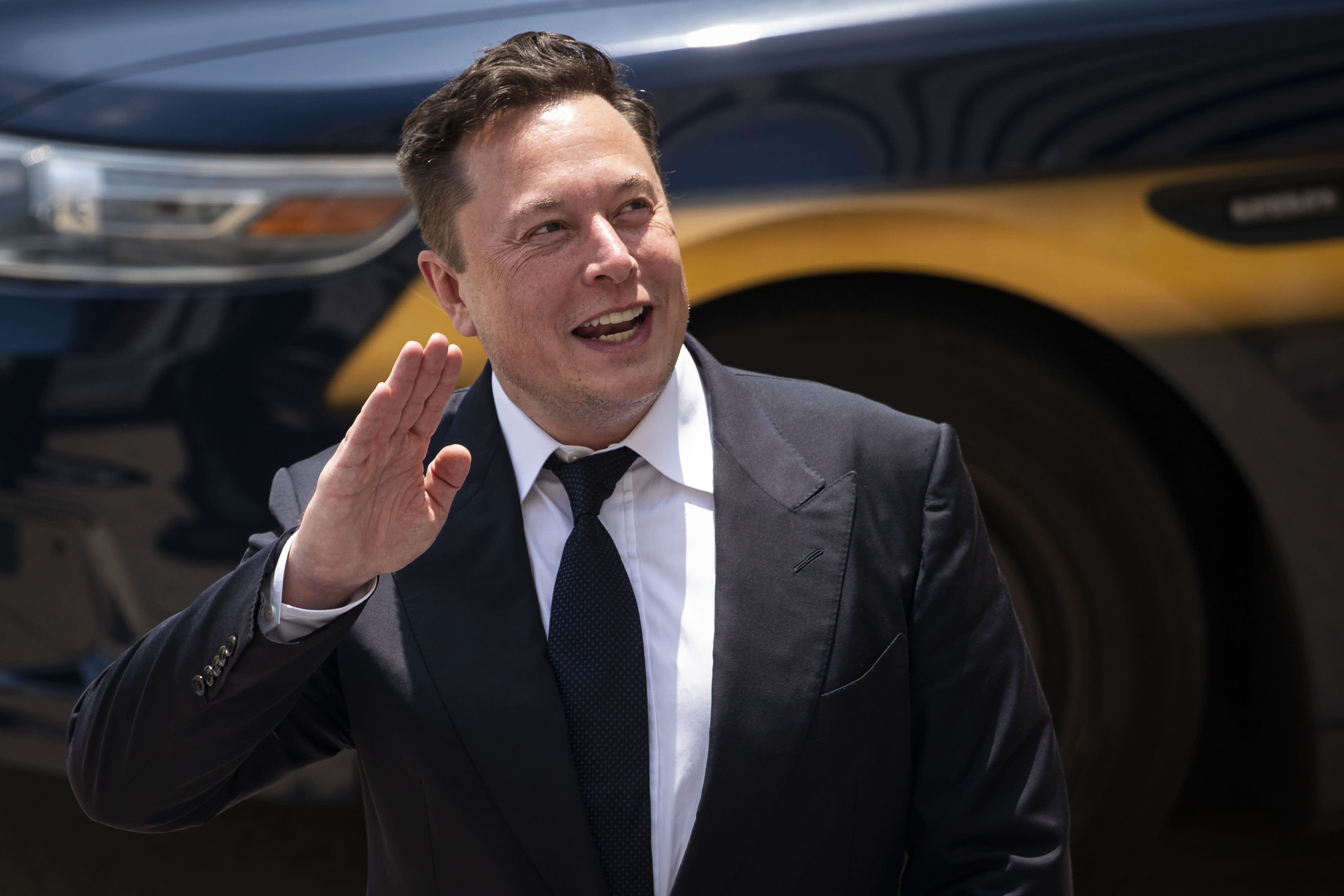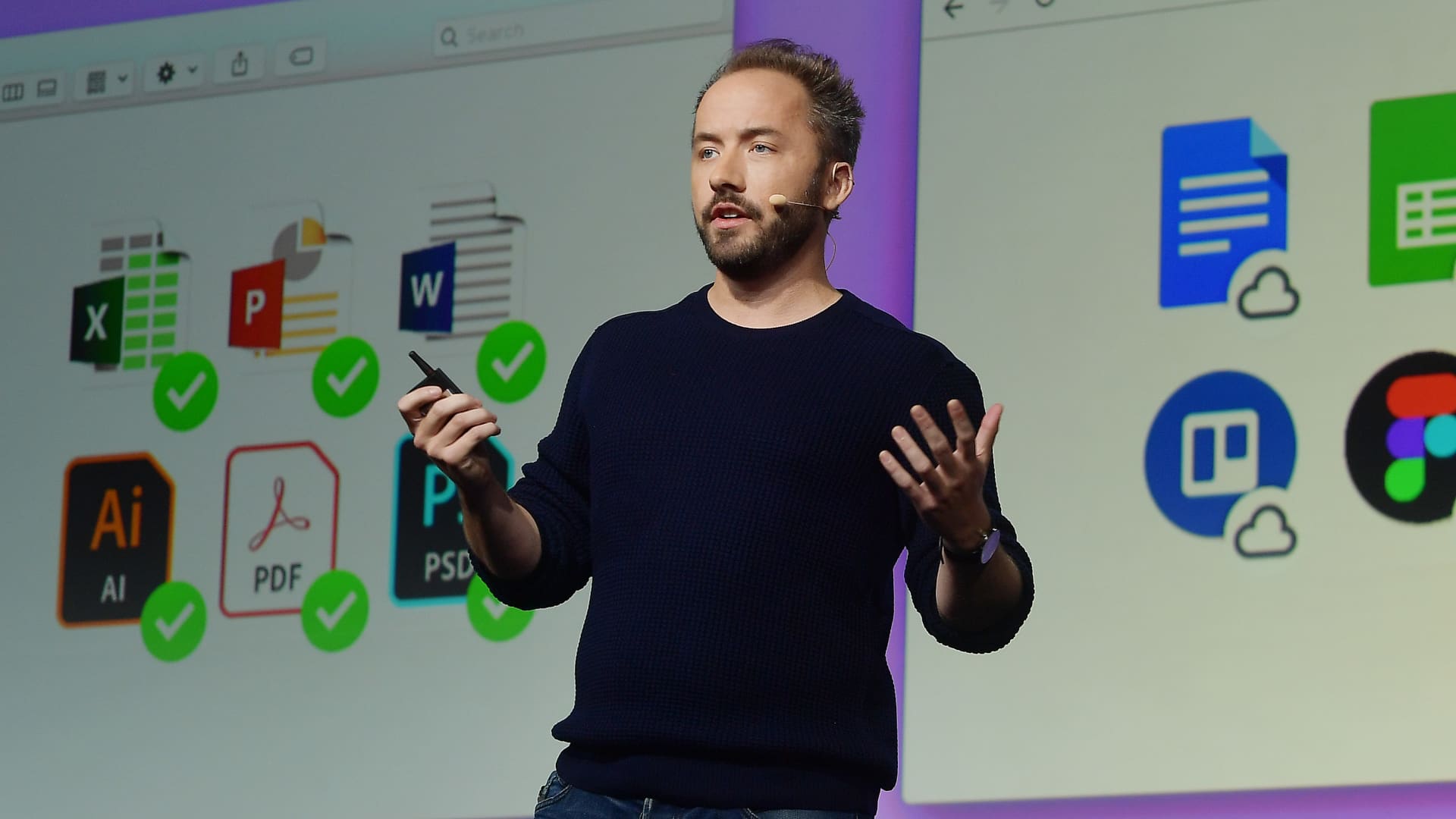Tesla unveils chip to train A.I. models inside its data centers

Elon Musk, chief executive officer of Tesla Inc., waves while departing court during the SolarCity trial in Wilmington, Delaware, U.S., on Tuesday, July 13, 2021.
Al Drago | Bloomberg | Getty Images
Tesla on Thursday unveiled a custom chip for training artificial-intelligence networks in data centers.
The work, shown at the automaker’s live-streamed AI Day, demonstrates the company’s continuing pursuit of vertical integration.
The D1 chip, part of Tesla’s Dojo supercomputer system, uses a 7-nanometer manufacturing process, with 1,024 gigaflops of processing power, said Ganesh Venkataramanan, senior director of Autopilot hardware. Tesla places a group of these chips onto a single “training tile” to deliver 9 petaflops of computing power, Venkataramanan said.
“We are assembling our first cabinets pretty soon,” said Venkataramanan, who previously worked at chipmaker AMD.
He said the Tesla technology will be the fastest AI-training computer. Chipmaker Intel, graphics card maker Nvidia and start-up Graphcore are among the companies that make chips that companies can use to train AI models.
The chips can help train models for recognizing a variety of items from video feeds collected by cameras inside Tesla vehicles. Model training requires extensive computing work.
“We should have Dojo operational next year,” CEO Elon Musk said.
The work comes two years after Tesla began producing vehicles containing AI chips it built in house. Those chips help the car’s on-board software make decisions very quickly in response to what’s happening on the road.
Tesla currently offers what it calls a “Full Self-Driving Capability” add-on for new vehicles. The $10,000 package lets the car automatically change lanes, navigate on highways, move into parking spots and emerge from a parking spot to arrive by the driver. The Tesla website says later this year the package will also include the ability for a Tesla to automatically steer on city streets, although Tesla had previously promised that feature would come out in 2019.
Tesla’s website says Full-Self Driving elements “require active driver supervision and do not make the vehicle autonomous.” Earlier this year Tesla introduced a $199 monthly subscription for Tesla owners who wish to access Full-Self Driving.
Critics have said that Tesla’s moniker for its driver-assistance features are misleading, as Tesla’s software does not offer Level 5 autonomy, where a car can completely drive in all circumstances without human intervention. Last year, a German court ruled that Tesla had misled consumers about the autonomous capabilities of its cars. The National Highway Traffic Safety Administration announced an investigation of Tesla’s Autopilot automatic steering, accelerating and braking capability earlier this week, following a string of crashes.
WATCH: Tesla advances faster than other car companies: Loup’s Munster
